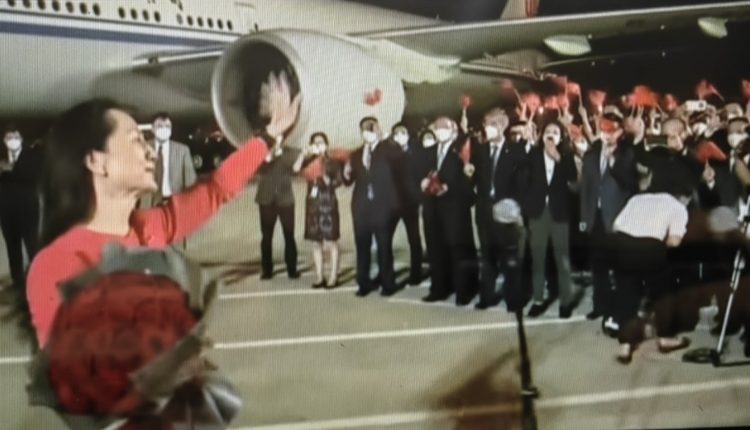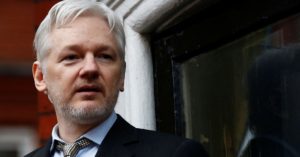‘US hegemony and its perils’ – Monopoly and Suppression
Ministry of Foreign Affairs, China/SPECIAL REPORT 4

Editor’s Note: This is the fourth part of the document released last February 20, 2023 by the Ministry of Foreign Affairs of the People’s Republic of China, which is this paper’s way of offering an alternative view of how peoples of the world should view the actions of the United States, especially among Filipinos who continue to be trapped in a neo-colonial mindset that makes it hard for them to see global issues from a nationalist perspective.
While the views express herein are from that of China, the truism the document contains is relevant to any country and race.
The document is divided into 5 categories—Political Hegemony, Military Hegemony, Economic Hegemony, Technological Hegemony and Cultural Hegemony with the Conclusion at the end of the document.
THE United States seeks to deter other countries’ scientific, technological and economic development by wielding monopoly power, suppression measures and technology restrictions in high-tech fields.
◆ The United States monopolizes intellectual property in the name of protection. Taking advantage of the weak position of other countries, especially developing ones, on intellectual property rights and the institutional vacancy in relevant fields, the United States reaps excessive profits through monopoly.
In 1994, the United States pushed forward the Agreement on Trade-Related Aspects of Intellectual Property Rights (TRIPS), forcing the Americanized process and standards in intellectual property protection in an attempt to solidify its monopoly on technology.
In the 1980s, to contain the development of Japan’s semiconductor industry, the United States launched the “301” investigation (essentially an economic coercion policy used by the US Trade Representative, USTR, to force rival foreign companies and countries to give concessions to US businesses, in this case, semiconductor industry—Editor) built bargaining power in bilateral negotiations through multilateral agreements, threatened to label Japan as conducting unfair trade, and imposed retaliatory tariffs, forcing Japan to sign the U.S.-Japan Semiconductor Agreement.
(Signed in 1986, the ‘agreement’ obligated Japan to open its semi-conductor market to US products by up to 20 percent within 5 years or by 1991 and allow the US the right to impose at what price Japan’s electronic products would be sold in the US market. Elsewhere, Japanese electronic products must be sold higher than their US counterparts—Editor).
As a result, Japanese semiconductor enterprises were almost completely driven out of global competition, and their market share dropped from 50 percent to 10 percent. Meanwhile, with the support of the U.S. government, a large number of U.S. semiconductor enterprises took the opportunity and grabbed larger market share.
◆ The United States politicizes, weaponizes technological issues and uses them as ideological tools. Overstretching the concept of national security, the United States mobilized state power to suppress and sanction Chinese company Huawei, restricted the entry of Huawei products into the U.S. market, cut off its supply of chips and operating systems, and coerced other countries to ban Huawei from undertaking local 5G network construction.
It even talked Canada into unwarrantedly detaining Huawei’s CFO Meng Wanzhou for nearly three years (Ms. Meng was released and went back to China on September 24, 2021, after nearly 3 years of illegal detention in Canada based on fabricated charges by the US government—Editor).
The United States has fabricated a slew of excuses to clamp down on China’s high-tech enterprises with global competitiveness and has put more than 1,000 Chinese enterprises on sanction lists.
In addition, the United States has also imposed controls on biotechnology, artificial intelligence and other high-end technologies, reinforced export restrictions, tightened investment screening, suppressed Chinese social media apps such as TikTok and WeChat, and lobbied the Netherlands and Japan to restrict exports of chips and related equipment or technology to China.
The United States has also practiced double standards in its policy on China-related technological professionals. To sideline and suppress Chinese researchers, since June 2018, visa validity has been shortened for Chinese students majoring in certain high-tech-related disciplines, repeated cases have occurred where Chinese scholars and students going to the United States for exchange programs and study were unjustifiably denied and harassed, and large-scale investigation on Chinese scholars working in the United States was carried out.
◆ The United States solidifies its technological monopoly in the name of protecting democracy. By building small blocs on technology such as the “chips alliance” and “clean network,” the United States has put “democracy” and “human rights” labels on high-technology, and turned technological issues into political and ideological issues, so as to fabricate excuses for its technological blockade against other countries.

In May 2019, the United States enlisted 32 countries to the ‘Prague 5G Security Conference’ in the Czech Republic and issued the Prague Proposal in an attempt to exclude China’s 5G products (the 32 countries “invited,” minus China, clearly targeted China’s 5G technology in the guise of ‘protecting security of communication channels’—Editor).
In April 2020, then U.S. Secretary of State Mike Pompeo announced the “5G clean path,” a plan designed to build technological alliance in the 5G field with partners bonded by their shared ideology on democracy and the need to protect “cyber security.” The measures, in essence, are the U.S. attempts to maintain its technological hegemony through technological alliances.
◆ The United States abuses its technological hegemony by carrying out cyber-attacks and eavesdropping. The United States has long been notorious as an “empire of hackers,” blamed for its rampant acts of cyber theft around the world.
It has all kinds of means to enforce pervasive cyber-attacks and surveillance, including using analog base station signals to access mobile phones for data theft, manipulating mobile apps, infiltrating cloud servers, and stealing through undersea cables. The list goes on (the confirmation of US domestic and global surveillance with the willing participation of US companies such as Facebook, Google, Microsoft, Twitter, etc.) came from the revelations made by Edward Snowden in 2013. A former contractor at the National Security Agency (NSA), Snowden was bothered by what he learned and decided to reveal what he knows. He is now residing in Russia to avoid prosecution by the US government—Editor).
U.S. surveillance is indiscriminate. All can be targets of its surveillance, be they rivals or allies, even leaders of allied countries such as former German Chancellor Angela Merkel and several French Presidents (a Reuters report on May 30 2021, citing security officials in Denmark, confirmed that the NSA has been spying on Merkel and other US European leaders thru its counterpart in Denmark– Editor).
Cyber surveillance and attacks launched by the United States such as “Prism,” “Dirtbox,” “Irritant Horn” and “Telescreen Operation” are all proof that the United States is closely monitoring its allies and partners.
Such eavesdropping on allies and partners has already caused worldwide outrage.
Julian Assange, the founder of Wikileaks, a website that has exposed U.S. surveillance programs, said that “do not expect a global surveillance superpower to act with honor or respect. There is only one rule: there are no rules.”
(Assange remains a virtual prisoner in the UK for the last 12 years, since seeking political asylum in the Embassy of Ecuador in 2012. In 2019, he was turned over and arrested by the UK police and is now battling an extradition to the United States for ‘computer intrusion’ and ‘espionage.’ His only ‘crime,’ however, was exposing US and Western occupation troops’ war crimes in Iraq and Afghanistan thru ‘Wikileaks’ that he co-founded in 2006, thus proving as lies the West’s pretension on the ‘value of human rights.’ Wikileaks got its information from US Army intelligence analyst, Pvt. Chelsea Elizabeth Manning who was bothered by her conscience while stationed in Iraq in 2009—Editor) End of fourth part.


